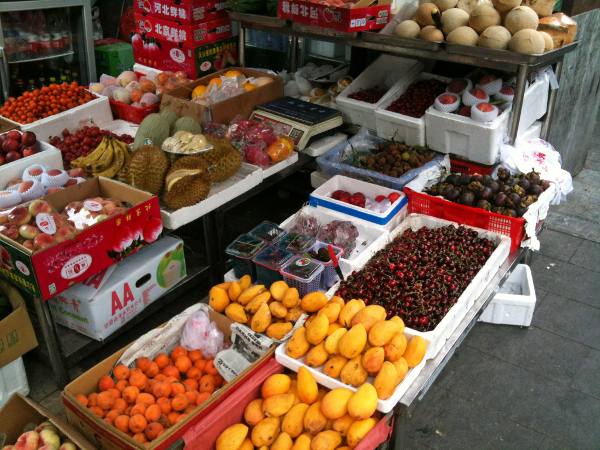July 20, 2012

The trends are stark and unmistakable: over the last 10 years fruit and vegetable imports from other countries to the United States have increased sharply with no letup in sight, according to data from the U.S. Department of Agriculture.
As of 2010, almost half of the fresh fruit and one-fourth of the vegetables consumed in the U.S. were imported, according to Dr. Luis Ribera, an agricultural economist at the Texas AgriLife Research and Extension Center at Weslaco.
Most came from North and South America, but an increasing number of fresh fruit imports are coming from China, Ribera said.
“China is now the fourth largest importer of fresh vegetables to this country,” he said. “That’s a concern, especially when you consider the well-publicized problems we had in the past with contaminated Chinese dog food, milk and baby food.”
Other cases of contaminated food include produce from Honduras and Mexico, Ribera added.
As food-borne illness outbreaks grab headlines, food safety is drawing the attention of lawmakers, according to Dr. Juan Anciso, a Texas AgriLife Extension Service horticulturist and food safety expert.
“Assuring safe food supplies is increasingly important for fresh fruits and vegetables as state and federal governments eye legislation to regulate safety issues, both domestically and internationally, because of past outbreaks,” he said.
The increase in perishable food imports is due to cheap labor and favorable growing conditions in China and other countries, Ribera said. But with that comes an inherent and increased risk of contaminated food.
For decades, Chinese officials had been concerned with simply feeding their billion-plus population. Now that they are an important food exporter, “China now has to focus on food safety, to be sure there are no issues,” Ribera said.
Ribera was recently in Shanghai and Beijing, China, to present a talk on food safety at a conference of the International Food and Agribusiness Management Association.
He spoke to academia as well as private and public food managers on the economic implications of the U.S. Food and Drug Administration’s new Food Safety Modernization Act, signed into law last year by President Obama.
“What this law basically says about imported fresh produce is that the importer/broker who imports fresh produce from overseas into the U.S. is now liable for that produce once it’s in the U.S.,” Ribera said.
The new law sets food safety standards on production, harvesting, handling and packaging on all produce, including imports, Ribera said. Until now, such standards had just been guidelines.
“At this point, the produce industry is waiting for the rules of the new FSMA that they will have to follow, which could take one to one-and-a-half years,” he said. “
Ribera and others are developing a cost analysis of the new rules.
“We’re currently working on a project that will measure the impact of FSMA on fruit and vegetable production in Texas, California and Florida, as well as any impact on produce imports,” he said.
Ribera said the study will be completed next year but suspects the new rules will likely increase the cost of production for fruits and vegetables, both domestically and overseas.
You May Also Like




